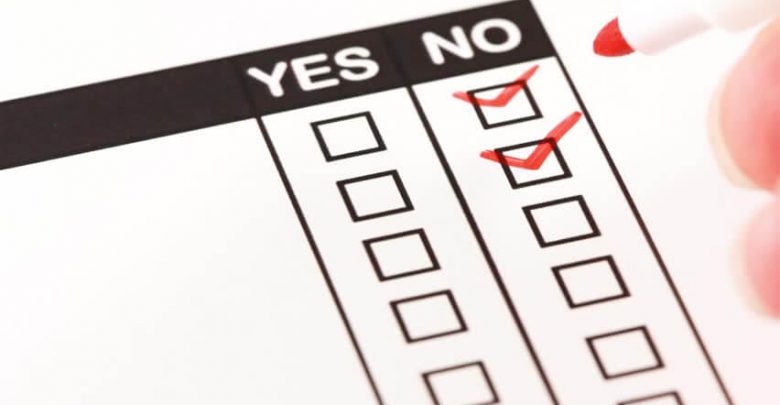
When it comes to choosing a VPN, it is important to first understand for which purpose you need a VPN.
Your acknowledgment that you do need a VPN is the first step, and more and more people like you are starting to understand this.
A VPN is a tool everyone needs these days.
Now, depending on what you need a VPN for, you might want to look at different features to compare.
VPN Comparisons – What to look for:
Compare VPNs for streaming
To compare the best VPNs for streaming you should look for:
- Speed
- Amount of Servers
- Available Countries
- Unblocking of Advanced Streaming Services
Speed – Probably the most important thing to look for is your download speed.
When you connect through a VPN, your connection speed will suffer from it. The only question is, by how much?
When it comes to measuring VPN speed for streaming, you should look at download speed which is measured in megabytes per second.
Some VPNs will reduce your download speed by only 1%-5% while other VPNs could slow you down by up to 95%.
In my experience, anything below 70 Mbps. download speed would mean annoying buffering and slow loading times.
Amount of Servers – Different servers have different capacities. There would almost always be a difference between two servers, even if they are located at the same Geolocation.
Having a large choice of servers means better speed optimization capabilities.
Available Countries – Many streaming services are localized meaning, you can access them only if you are coming from a local IP address.
To keep your streaming options open, you should look for a VPN that offers a large number of Countries to connect through.
Unblocks advanced streaming services – Netflix, Hulu, BBC iPlayer, and Amazon Prime are just an example of a few streaming services that invest in blocking VPN traffic.
They have various methods for doing this, such as IP blacklisting, but some VPNs invest an equal amount of effort to override that as well.
Not all VPNs are able to unblock advanced streaming services, so depending on which one you want to unblock, you should check which VPN can do it.
According to my findings, the most recommended VPNs for streaming are: ExpressVPN and Cyberghost
| ExpressVPN | PrivateVPN | CyberGhost | IPVanish | NordVPN | VyprVPN | SaferVPN | PureVPN | HideMyAss | ZenMate | |
| Max download speed | 85 Mbps. | 73 Mbps | 88 Mbps | Unstable | 46 Mbps | 74 Mbps | 59.35 Mbps | 39.90 Mbps | 15 Mbps | 81 Mbps |
| Max upload speed | 36 Mbps. | 35.91 Mbps | 76 Mbps | Unstable | 36.14 Mbps | 30.31 Mbps | 81.24 Mbps | 4.35 Mbps | 8 Mbps | 77 Mbps |
| Ping time | 0-0.2ms | 5Ms | 4ms | 3ms | 5ms | 6ms | 4ms | 10ms | 5ms | 13ms |
| Servers | 1500+ | 80 | 2700 | 1000 | 1106 | 700 | 700 | 500+ | 280 | 23 |
| Available Countries | 95 | 52 | 47 | 60 | 61 | 73 | 35 | 121 | 190 | 23 |
| Tested and confirmed to unblock | Netflix, BBC, Hulu, Amazon Prime, ESPN, HBO Now, Twitch, YouTube, Spotify, Pandora, ESPN, Sky Go, NBC, Kodi | Netflix, BBC iPlayer, Amazon Prime | Netflix, BBC, Hulu, Amazon Prime, ESPN, HBO Now, Twitch, YouTube, Spotify, Pandora, ESPN, Sky Go, NBC, Kodi | ESPN, Sky Go, NBC, HBO | Netflix, BBC iPlayer, Kodi | BBC iPlayer, Kodi, HBO | Netflix, Hulu, Pandora, Spotify | showtime, Hulu and Amazon Prime | BBC iPlayer, Amazon Prime | Kodi, BBC iPlayer |
Compare VPNs for privacy and security
Compare the best VPNs for privacy. Here are the main features to notice:
- Security Protocols
- No logs Policy
- Kill Switch
- DNS Leak Protection
Security Protocols – There are several main VPN protocols, which are the methods each VPN uses to connect you to the VPN server. Some are better for speed and others are better for security.
- OpenVPN over UDP – User Datagram Protocol. A fast VPN protocol based on OpenVPN source. OpenVPN is generally considered one of the most secure VPN protocols.
- OpenVPN over TCP – Transmission Control Protocol. Also based on OpenVPN, the TCP, unlike UDP is running error checks and retransmitting dropped packets. This means it’s a more reliable VPN protocol, but slower.
- PPTP – Point to Point Tunneling Protocol -This VPN protocol, is the simplest and therefore the fastest though it lacks efficient connection security.
- SSTP – Secure Sockets Tunneling Protocol – This is the most secure VPN protocol because it reroutes your connection through an SSL connection.
- L2TP/IPSEC – Layer 2 Tunneling Protocol – A standard VPN protocol, with high efficiency but low security. For this reason, it is paired with the IPSec, aka Internet Protocol Security which encrypts each IP packet in any given communication. Naturally, this encryption protocol slows down the VPN connection.
No Logs Policy – Some VPN services keep logs on your connection or browsing history.
In most cases, those logs are then used as a monetization tool for those VPNs.
In other words, VPNs that keep data logs are selling your private data, and I, therefore, recommend avoiding them.
Most, if not all free VPNs, for example, do exactly that in order to make money off of their ‘free’ users.
Kill Switch & DNS Leak Protection – Both security features exist to make sure your origin IP and browsing data are never exposed. They take over once your VPN connection fails for some reason.
when this happens, and you are using a VPN that doesn’t enable a kill switch or DNS leak protection then your ISP automatically detects the websites you are on, and your Geolocation from your IP address.
If you are in the middle of browsing an otherwise blocked site or service and this occurs, you will be disconnected instantly.
And if your VPN does support a kill switch and DNS leak protection, then even if it disconnects or fails your identity would still remain safe.
The most recommended VPNs for Privacy and security are: ExpressVPN and NordVPN
| ExpressVPN | PrivateVPN | CyberGhost | IPVanish | NordVPN | VyprVPN | SaferVPN | PureVPN | HideMyAss | ZenMate | |
| Open VPN (UDP/TCP) | + | + | + | + | + | - | - | + | + | - |
| PPTP | + | + | + | + | + | + | + | + | + | - |
| SSTP | + | - | - | - | - | - | - | + | - | - |
| L2TP/IPSec | + | + | + | + | + | + | + | + | + | + |
| IKEv2 | - | + | - | + | + | + | + | + | - | + |
| DNS Leak Blocking | + | - | + | + | + | + | + | + | - | - |
| Killswitch | + | + | + | + | + | + | + | + | + | - |
| No-Logs Policy | + | + | - | + | + | - | - | - | - | - |
Compare VPNs for Countries
Here are the features to compare the best VPNs for specific Countries:
- Wide Geographic Servers Spread
- Killswitch
- DNS leak protection
The best VPNs for Country blocks (geo-restrictions) are: ExpressVPN and Cyberghost
| ExpressVPN | PrivateVPN | CyberGhost | IPVanish | NordVPN | VyprVPN | SaferVPN | PureVPN | HideMyAss | ZenMate | |
| Servers | 1500+ | 80 | 2700 | 1000 | 1106 | 700 | 700 | 500+ | 280 | 23 |
| Available Countries | 95 | 52 | 60 | 60 | 61 | 73 | 35 | 121 | 190 | 23 |
| DNS Leak Blocking | + | - | + | + | + | + | + | + | - | - |
| Killswitch | + | + | + | + | + | + | + | + | + | - |
Compare VPNs by Price
- Pricing Plans
- Money Back Guarantee Period (If applicable)
- Free Option
Pricing Plans – Each different VPN service has a different pricing plan.
The most common plans are the yearly ones, though some VPNs offer a 2 and even 3 year upfront subscription for an exceptionally cheap monthly payment.
Money Back Guarantee – So you’ve tried out a VPN service, but for some reason don’t like it, or don’t want to keep paying for it.
Most VPNs offer a no-questions-asked money back guarantee policy.
The only question that remains is for how long would you be able to get your money back before committing to a certain VPN.
Free trial – Paid VPNs usually do not offer a free trial. Meaning to get and install the VPN without needing to give your credit card details at all.
If you do go for a completely free trial VPN, make sure you read the terms and conditions for this option very carefully.
Best value for money VPNs are: ExpressVPN and Cyberghost
| ExpressVPN | PrivateVPN | Cyberghost | IPVanish | NordVPN | VyprVPN | SaferVPN | PureVPN | HideMyAss | ZenMate | |
| Customer Support | Email, Chat | Email, Chat | Chat, FAQ | Email, Chat | Email. Chat, FAQ | Email, Chat | Email, Chat | Email, Chat | Chat | FAQ |
| Money Back Guarantee | 30 days | 30 days | 45 days | 7 days | 30 days | N/A | 30 days | 15 Days | 30 days | 14 Days |
| Free Trial | - | - | - | - | - | 3 days | - | - | - | - |
| Best Price | 15 Months – $6.67 /month | 13 Months – $3.88 /month | 18 Months - $3.5 /month | 12 Months - 6.49 /month | 3 Year Plan – $2.75/month | 12 Months - $3.75 /month | 2 Year Plan - $3.29 /month | 3 Year Plan - $1.92 /month | 12 Months - $5.99 /month | 12 Months - $5.99 /month |
Other Comparisons
Free VPN Compared to Paid VPN
Although it might be tempting to try out a completely free VPN service, and there are plenty of those out there.
You should be aware of what you will be getting from a free VPN as opposed to a premium paid one.
In addition, free VPNs do make money, just not directly from you, but rather from selling your private connectivity and browsing data.
This data is worth a lot of money especially to advertisers or advertising agencies.
Here are the main differences between free and paid VPN services:
| Feature | Free VPN | Premium VPN |
|---|---|---|
| Customer Support | Email Only | Email, Chat, Phone |
| Servers | A small selection of servers to choose from. | Hundreds to thousands of servers to choose from. |
| Countries | Small Selection | Large Selection |
| Connection Speed | Slow | Fast |
| Bandwidth | Limited | Unlimited |
| Privacy | Browsing data is logged and may be sold. | Little to no browsing logs. |
| Security | Limited security Protocols. | AES-256 bit encryption with additional security protocols as standard. |
| Simultaneous Connections. | No more than 1 connection at a time. | Up to 7 simultaneous connections. Various different devices supported. |
| Unblock Websites | Unblocks basic websites and apps | Unblocks all websites plus protected services such as Netflix and BBC iPlayer. |
| Price | Free | Up to $10 / Month + Customary 30 days money back guarantee |
Bottom Line
A VPN can be used for several different things, and in general, you should be looking at the big picture and find a VPN that answers the most needs.
Depending on what you are looking to get from a VPN, you should be looking at different aspects and features.
Each purpose has a different set of required features, and by comparing the world’s leading VPN services you can find the best VPN for what you need.




